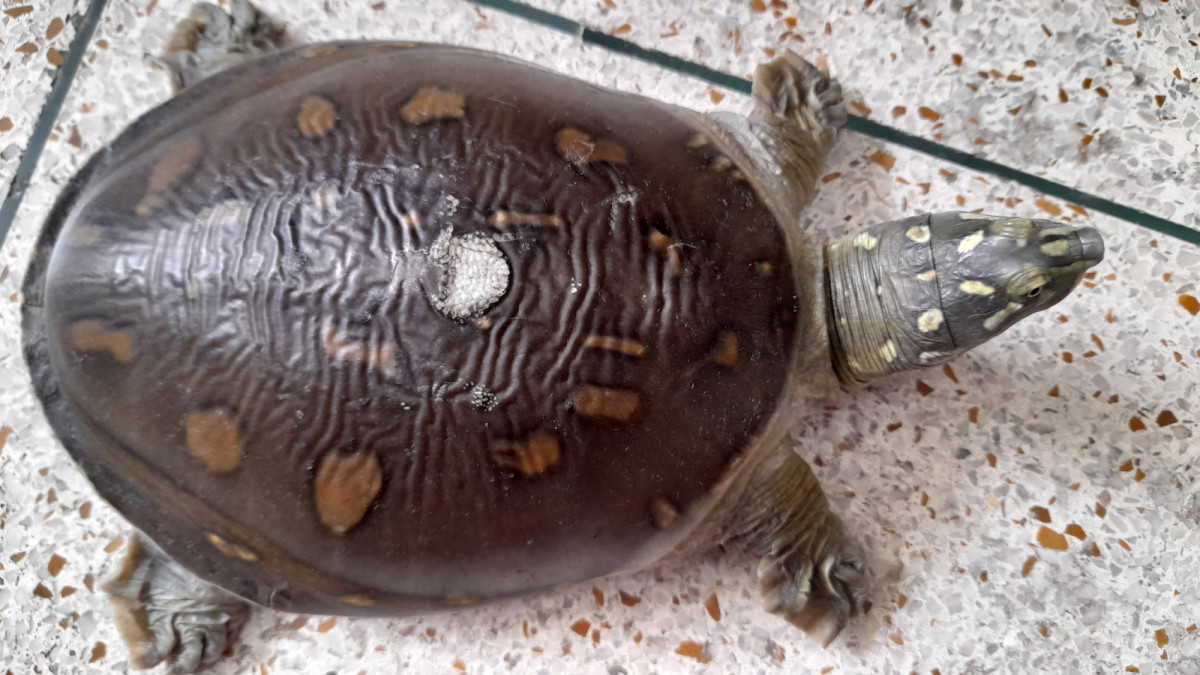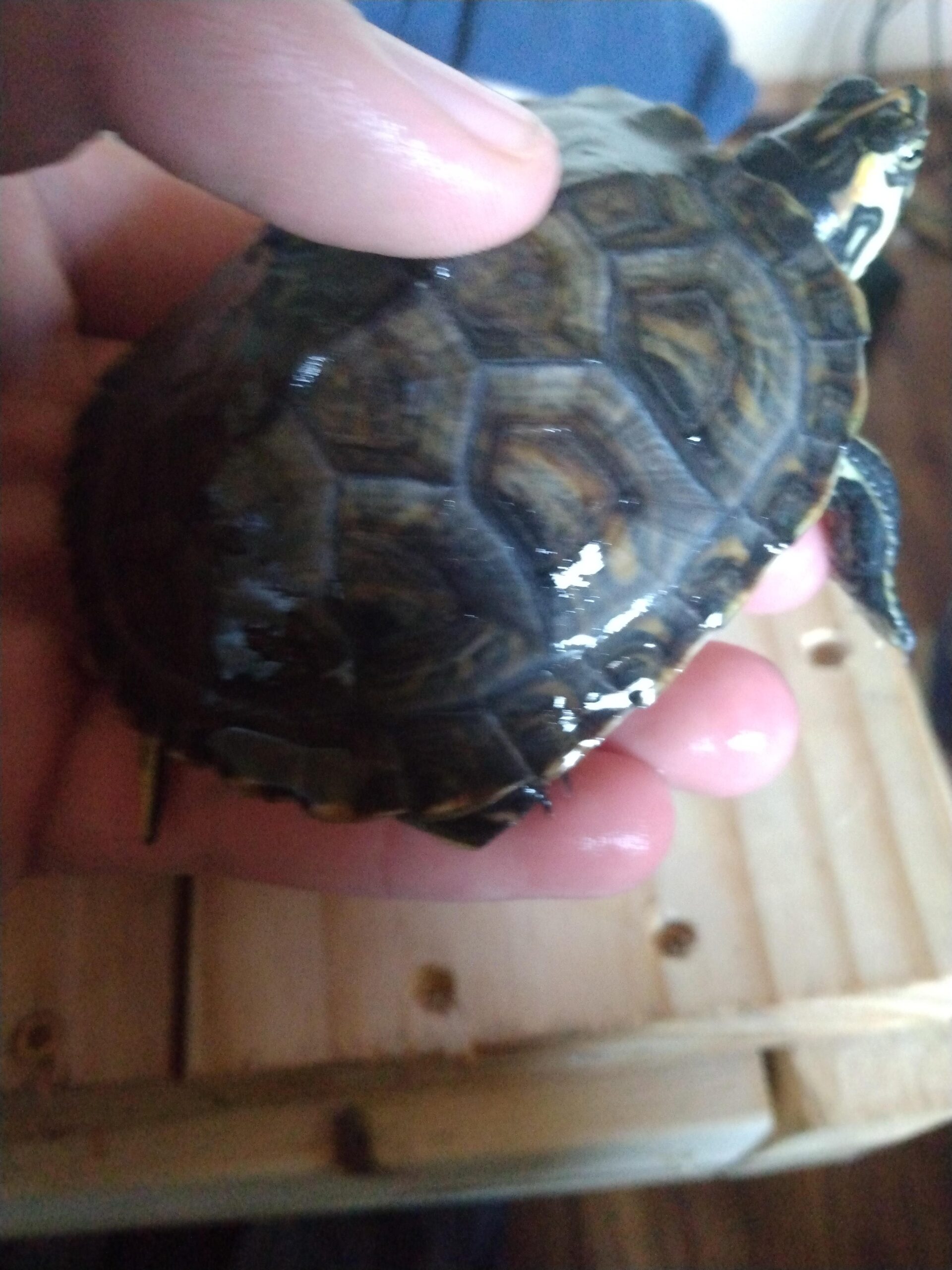A turtle’s shell may be soft due to a lack of calcium in its diet or inadequate exposure to UVB light, which is essential for shell development and maintenance. This can lead to a condition called metabolic bone disease, causing the shell to become soft and deformed.
Other factors, such as poor water quality or improper handling, can also contribute to a soft shell. As a responsible turtle owner, it’s crucial to provide a balanced diet, proper lighting, and a suitable habitat to ensure your turtle’s shell remains healthy and strong.
Regular veterinary check-ups can help identify and address any underlying health issues that may be affecting your turtle’s shell. By addressing these factors, you can help your turtle regain a healthy and sturdy shell.
Causes Of Soft Turtle Shells
Soft turtle shells can be a concerning issue for pet owners, indicating underlying health problems. Understanding the causes of soft turtle shells is crucial for providing the necessary care and treatment for these beloved reptiles.
Nutritional Deficiencies
Inadequate calcium or Vitamin D levels in a turtle’s diet can lead to soft shell formation. Poor quality commercial turtle food or a lack of variety in their diet can contribute to nutritional deficiencies.
Metabolic Bone Disease
Metabolic bone disease is a common condition in turtles caused by improper calcium metabolism. Lack of access to UVB light for proper calcium absorption can result in soft shells.

Credit: www.reddit.com
Impact On Turtle Health
Soft shells in turtles indicate health issues like poor nutrition or metabolic bone disease. Ensure a balanced diet with calcium and Vitamin D3 supplements to strengthen the shell and prevent further complications. Regular vet check-ups are essential for early detection and treatment of any underlying health issues.
Turtles are known for their hard protective shells that serve as a shield against predators and environmental hazards. A soft shell is a cause for concern as it puts the turtle’s health at risk. The shell not only provides protection but also supports the turtle’s body structure and internal organs. A soft shell can be a sign of an underlying health problem, and it’s essential to address it promptly to prevent further damage. In this section, we will explore the impact of a soft shell on turtle health, focusing on the risk of infections and impaired mobility.Risk Of Infections
A soft shell can make a turtle more susceptible to infections. The shell is made up of living tissue, and any damage or weakness can create an entry point for bacteria and fungi. Infections can spread quickly and cause severe damage to the shell and the turtle’s health. Some common signs of infection include swelling, redness, discharge, and foul odor. If left untreated, infections can lead to shell rot, which can be fatal. To prevent infections, it’s crucial to keep the turtle’s environment clean and dry, and monitor any signs of damage or softness in the shell.Impaired Mobility
A soft shell can also impair a turtle’s mobility, making it difficult for them to move and function normally. The shell provides support and structure for the turtle’s body, and any damage or softness can affect their ability to walk, swim, and eat. In severe cases, a soft shell can cause deformities or even lead to paralysis. It’s essential to provide a comfortable environment for the turtle to move around and avoid any rough surfaces that can further damage the shell. If you notice any signs of impaired mobility, it’s best to seek veterinary care immediately. In conclusion, a soft shell can have significant implications for a turtle’s health, and it’s essential to address it promptly. Regular check-ups, a healthy diet, and a clean environment can go a long way in preventing soft shells and other health issues in turtles. Remember to keep an eye out for any signs of damage or softness in the shell, and seek veterinary care if necessary.Prevention And Treatment
Soft shell in turtles can be a concerning issue, but with proper care and attention, it can be both prevented and treated. Here are some essential factors to consider for maintaining the health of your turtle’s shell:
Proper Diet And Supplements
A well-balanced diet plays a crucial role in ensuring the strength and health of a turtle’s shell. A diet rich in calcium is essential, as it helps in shell development and maintenance. Include a variety of dark, leafy greens, such as kale and collard greens, as well as commercial turtle pellets fortified with calcium and other essential nutrients.
Uvb Lighting
Exposure to UVB light is vital for turtles as it allows them to metabolize calcium effectively, which is essential for maintaining a healthy shell. Ensure that your turtle’s habitat is equipped with a UVB light source, and provide adequate exposure to natural sunlight when possible. This will support the proper development and maintenance of their shells.

Credit: pethelpful.com
Consulting A Veterinarian
When it comes to your turtle’s health, consulting a veterinarian is crucial for addressing any concerns about its soft shell. Professional advice can provide you with the necessary guidance and expertise to ensure your pet’s well-being. Veterinarians have the knowledge and experience to diagnose the underlying causes of your turtle’s soft shell and recommend appropriate treatment options.
Importance Of Professional Advice
Seeking professional advice is essential as veterinarians possess specialized knowledge in reptile care. Their expertise allows them to evaluate your turtle’s condition accurately and provide tailored recommendations to address the issue of a soft shell. By consulting a veterinarian, you can gain a deeper understanding of the factors contributing to the soft shell and access the necessary support for your pet’s health.
Diagnostic Tests
Diagnostic tests play a crucial role in identifying the root cause of your turtle’s soft shell. Veterinarians may conduct blood tests, radiographs, and other diagnostic procedures to assess your turtle’s overall health and detect any underlying deficiencies or medical conditions. These tests provide valuable insights that guide the development of an effective treatment plan, ensuring the well-being of your turtle.
Common Myths Debunked
Soft Shells Are Normal
It is a common misconception that soft shells in turtles are normal and do not require attention. However, a soft shell can actually indicate a serious health issue, such as a deficiency in calcium or vitamin D. This condition, known as metabolic bone disease, can weaken the turtle’s bones and shell, leading to deformities and other health problems. Therefore, it is essential to address a soft shell promptly and seek veterinary care to ensure the turtle’s well-being.
Shell Will Harden On Its Own
Another prevalent myth is that a turtle’s soft shell will naturally harden over time, without any intervention. In reality, a soft shell is often a sign of an underlying health issue, and it is unlikely to harden on its own without proper treatment. Ignoring a soft shell can lead to further complications for the turtle, so it is crucial to take proactive steps to address the issue, such as adjusting the turtle’s diet, providing proper lighting and temperature, and consulting a veterinarian for guidance.
Case Studies
Case studies of turtles with soft shells provide valuable insights into the challenges faced and the recovery stories of these remarkable creatures.
Recovery Stories
The recovery stories of turtles with soft shells are heartwarming and inspiring. These resilient creatures demonstrate remarkable strength and determination in overcoming their shell-related issues. One such example is the story of a young turtle named Toby, who was found with a severely soft shell due to a calcium deficiency. Through dedicated care and a specialized diet, Toby’s shell gradually regained its strength, allowing him to thrive in his natural habitat once again.
Challenges Faced
Turtles with soft shells face a myriad of challenges, both physical and environmental. The softness of their shells makes them more vulnerable to injuries and predation, requiring extra protection and care. Additionally, these turtles may struggle to regulate their buoyancy and thermoregulation, impacting their ability to swim and maintain body temperature. Overcoming these challenges often requires specialized veterinary care, rehabilitative efforts, and environmental interventions.
Educational Outreach
As a turtle owner, it can be concerning to notice that your pet’s shell is soft rather than hard. A turtle’s shell is an essential part of its anatomy, providing protection and support. A soft shell can indicate a health issue, and it’s essential to seek veterinary care to address the underlying problem. However, there are also steps you can take to prevent soft shells in turtles and promote their overall health.
Raising Awareness
One crucial aspect of preventing soft shells in turtles is education. Many people are unaware of the proper care and habitat requirements for turtles, leading to health issues like soft shells. Raising awareness about turtle care and the dangers of inadequate living conditions can help prevent soft shells and other health problems.
Training Programs
Another way to promote turtle health and prevent soft shells is through training programs for pet owners and wildlife enthusiasts. These programs can teach proper turtle care techniques, including habitat requirements, feeding, and hygiene. By providing education and resources, training programs can help prevent soft shells in turtles and promote their overall well-being.
Conclusion
Soft shells in turtles can indicate health issues, but with proper care and attention, they can often be prevented. Raising awareness and providing education and resources are essential steps in promoting turtle health and preventing soft shells. If you notice that your turtle’s shell is soft, seek veterinary care immediately to address the underlying issue.

Credit: www.reddit.com
Conclusion
Understanding why your turtle’s shell is soft is crucial for its health. Proper diet, lighting, and habitat play key roles. Regular vet check-ups ensure early detection of any shell issues. By following these tips, you can help your turtle thrive with a strong and healthy shell.






Leave a Reply